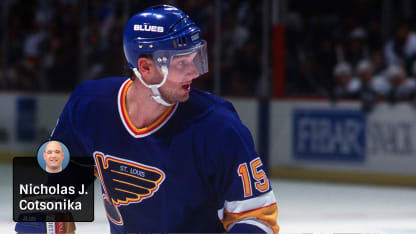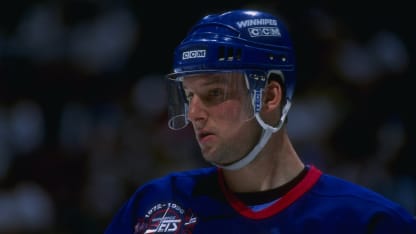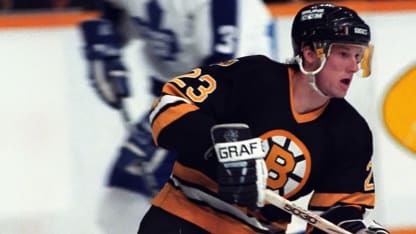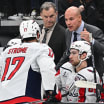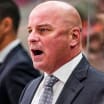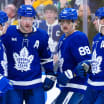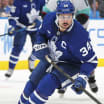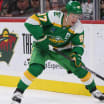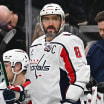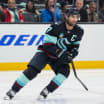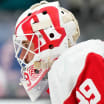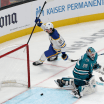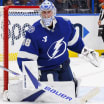In 760 regular-season games for the Boston Bruins, St. Louis Blues, San Jose Sharks, Winnipeg Jets, Phoenix Coyotes, Tampa Bay Lightning and New York Islanders, he had 563 assists and 751 points. He ranks first in assists per game (0.741) and fourth in points per game (0.988) among American-born players.
Wayne Gretzky was the top passer in just about every category, but Janney and Adam Oates were right behind Gretzky in small areas in the offensive zone, Hall of Fame defenseman Brian Leetch said.
Janney could read defenders -- how their feet were angled, how their sticks were positioned -- and thread 6- to 12-foot passes through traffic tape to tape. He could look off defenders, make them think they had their men covered and sneak passes past them in just the right spots for teammates to shoot.
"Those small passes," Leetch said, "somehow he had the vision like all great players do."
If you were a goal-scorer, you wanted him as your center.
"Some guys just like setting other players up," Hall of Fame forward Cam Neely said, "and he was one of them."
Leetch played against and with Janney starting at age 9, when he played for Cheshire and Janney played for Enfield in Connecticut. He remembered Janney as "unstoppable" as a kid, so much so that when they were 11 or 12, his coach put a shadow on Janney.
"That was the first time I had ever heard of a shadow," Leetch said. "All of us players kind of looked at each other like, 'You're going to do what?' He had one of the forwards follow him around. Craig kind of laughed and still got his points and still beat us at the end with good plays."
They played on Connecticut all-star teams together. They played in two world juniors together and got picked in the first round of the 1986 NHL Draft together, Leetch No. 9 by the New York Rangers, Janney No. 13 by the Bruins.
They played a season at Boston College together in 1986-87, when Janney had 83 points in 37 games as a sophomore. Janney was a year ahead of Leetch in school, and Leetch remembered arriving on campus and hearing stories of Janney's impact as a freshman.
"He certainly didn't look the part fitness-wise or muscle-wise," Leetch said. "He was a scrawny kid from Connecticut that came in and started setting these guys up on plays they never saw coming, and all their point totals increased. He had them shaking their heads."
They played for the U.S. national team together in 1987-88, roommates while traveling the world for months. Finally, they played together in Calgary. The United States failed to defeat the Soviet Union and failed to win a medal, while the Soviet Union won gold. But it was the Olympics. It was the dream.
"Everything else was gravy," Janney said.
